
Maybe you wrote an article, a story or a novel. Perhaps you created a website, blogged, put a video up on YouTube, or you’re an actor, fashion designer, musician, film maker… Whatever you’re doing, you’re putting yourself out there creatively and daring to make something new and explore. And then your work is uploaded onto the internet and exposed to the merciless gaze of millions of potential viewers…
If your work attracts any interest at all, next thing you know, the haters are all over you, getting up in your face. “I can’t BELIEVE you killed off Mr Darcy, what were you thinking?!” “Your eyes are too far apart,” “Why don’t you eat makeup, so you can be beautiful on the inside,” Or even, “Drink petrol and die.”
Japanese writer Sebuyama from comedy news site Omocoro recently carried out a social experiment aiming to demonstrate just how useless it is to respond to haters on the internet and use reason. He tried to find out why they were hating, and discovered three different flavors of hater!
Even if you’re not even remotely well-known and you only write a couple of articles here and there, if you have readers on Facebook or Twitter, you’ll get haters, most likely because it’s so easy to tap out a quick snarky response without thinking anything of it. I was personally quite taken aback at how angry my first ever online critic was. What had I done to deserve such aggression? I mean, he was relatively polite—he just said that I was stupid and lazy. I realize the guy didn’t and doesn’t know me at all. Still, when I read those harsh words I started to shake all over and it was a while before I even attempted to write anything else. Most likely the writer had quite forgotten about it all, but it really got to me.
Why do they write these terrible things about people they don’t even know? What gives them the right to look down and pass judgment? Why are they hating?
Sebuyama believes that the answer is simple: They hate, because that’s the kind of creatures they are. Creatures who live to bad-mouth people online, as a hobby, as a way of life. It might be hard to understand, but they are just those kind of creatures. It’s the nature of these beasts.
Image by Tristan Schmurr
Haters gonna hate, trolls gonna troll. Some of the harshest critics are frustrated creatives, bitter and twisted about their own unsuccessful dreams of achieving what you have already–which is putting yourself out there and getting noticed.
Be that as it may, being insulted gets most people a little warm under the collar. You get angry, and the first thing you want to do is respond to it—hit back, or give your rebuttal, or ask why. Sadly, responding is usually useless.
Once in a while, some kind person might attempt to set them straight. You might think that if you explain things to them, they’ll understand, but unfortunately the concepts “explain” and “understand” only work if you are using the same kind of words. If you try talking to them in human words, they’ll respond in troll. What a waste of breath!
To prove the futility of responding to haters, Sebuyama carried out an “ego search” experiment on Twitter. (Ego searching is a term for searching for your own name to see what is out there about you on the internet… you know, like Googling yourself.)
Finding some pretty unkind tweets about him, he deliberately replied to each one, a process which naturally requires some mental toughness. The responses he got in return generally fell into three different patterns… (We have translated the following discourse into English.)
1) Evasion
When Sebuyama searched for his own name on Twitter, the first hit was the tweet above. Some random throwing his name around and telling him to “quit the internet”.
Wait—maybe there was a very good reason Sebuyama should quit the internet? Could this guy be a time-travelling agent sent back from the future, desperately trying to stop Sebuyama using the internet because of the terrible chain of consequences this set in motion?? To find out, Sebuyama sent him the reply below…
“Why?” I mean, there might be a good reason why…?
Ooh, a reply came back!
Well, that’s good to know, but… Huh? Seems like something’s not quite clicking here… like they’re just talking past each other.
Trying to get to the bottom of this, Sebuyama asked him why one more time. “Quit the internet”—what does that mean anyway? Just never use it ever again?? Sounds reasonable.
But there was no direct reply.
Instead, the tweets below were fired out in rapid succession…
I guess this guy got peeved at having to evade the question, and started bagging not just Sebuyama but the website he writes for, Omocoro.
Anyway, replying, it seems, is just like pouring oil on the fire!
2) No rhyme or reason
Next, Sebuyama stumbled upon this kind of tweet:
Looks like this tweeter wants to praise Ono Holiday and diss Sebuyama!
Of course, it’s fine if someone’s work is not to your taste and you decide to unfollow them on Twitter, but why would you go to the extent of posting rude comments about it? Seems like a lot of effort for no reason other than to be, well, kind of a jerk.
What the…?
So this “hater” had no real malicious intent. There was no real rhyme or reason to their criticism. It wasn’t like they were thinking, “I want to destroy Sebuyama’s career, mwahahahaha!!!” They were only tweeting what they were doing, just like tweeting “having dinner now” or “in Shibuya now”.
So if you were to reply to them, it’s like asking them “Why are you in Shibuya now? WTF?!” …they probably won’t even have any particular reason.
If someone’s tweeting bad things about you without any particular reason, you won’t get anything out of questioning it. You may as well interrogate the weather.
3) Ignorance
Apparently, even reading just the title of Sebuyama’s article was enough to drive this tweeter to wish death on him. They can’t be bothered reading it, they just want him to die?
Well, perhaps it wasn’t the best article ever, but isn’t this taking things too far? Let’s see.
Good question, Mr. Sebuyama. Well????
Oh, right, they are totally ignoring Sebuyama’s response to their death wish tweet.
Again, this interaction was futile.
- But wait, isn’t it okay to respond to haters if it makes us feel better?
“Replying to abuse on the internet may be useless, maybe you don’t gain anything by it, but on the other hand you don’t lose anything by it, right? If you hit back, you’ll feel better!”
Unfortunately there is one major drawback. Check out the tweet below!
This is some other stranger on the internet who happened to notice the other interactions and get in on the action. Here’s one more person thinking “Sebuyama’s doing an ego search and responding to all the hits! Weak sauce.”
The problem is that even your fans might see you engaged in these kind of slagging matches and realize that you’re no better than the douchebags getting up in your face. Replying to stupid tweets sinks you down to their level. If you have the time and energy to ego search and engage with the haters, it’s a hundred times better to use that time and energy creating something new.
- How about shutting out all criticism?
Some say that if you only listen to praise, your work gets gradually worse and worse. And honestly, that may be so.
However, this is a different kind of criticism. We need constructive criticism, not mindless abuse. For example, someone tells you “that bit was good, but if you tried putting in a bit more of the other, it would improve things.” Now that is extremely valuable, and a great way to improve.
But if people are just writing things like “boring (yawn)”, “WTF”, “I don’t get it”, or “this sucks” without giving any concrete reasons, how can you get anything out of that? If people can’t express their own feelings with any better words than that, how can they express any criticism that would be useful?
Sebuyama thinks the opinions of people like that are boring, WTF, and he doesn’t get it. And yeah, they suck.
- Hey, we have a right to free speech! That’s how I feel, so that’s what I wrote! What’s so bad about that? Leave us alone!!
Of course. So do we all.
This article is another good example of free speech. Just as you say, what’s so bad about that? Leave me alone!
- Hang on… so this whole article is really just a lame response to haters?
Eeeek! You’re totally right, that’s exactly what this is. So let’s cut to the chase!
- Finally…
The reason Sebuyama wanted to write his article was that he had met with many young artists who wanted to put more work out there but were frozen in fear of internet hate.
Up until then, he had thought that abuse on the internet was just like graffiti scribbled on a toilet wall, or a stray dog barking… relatively harmless and lacking in any real meaning. But actually, abuse written on a toilet wall can still sting. Being barked at by a stray dog can be scary.
Some think that if you don’t have a thick skin, you don’t have what it takes to be an artist… but along with the growth of social media has come a greater level of public abuse and intimidating, bullying behavior. Don’t let it hinder your efforts to create! Don’t waste time even worrying about it—that time is better spent making the world a more amazing, colorful place. There will always be haters, but we don’t have to pay attention to their mindless noise. Responding is futile. Let’s focus on what’s really important.
Source: Omocoro
Images: Tristan Schmurr, Omocoro
Featured image: RocketNews24






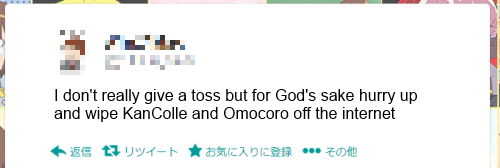
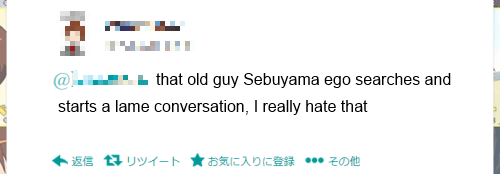

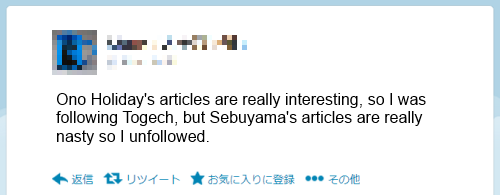

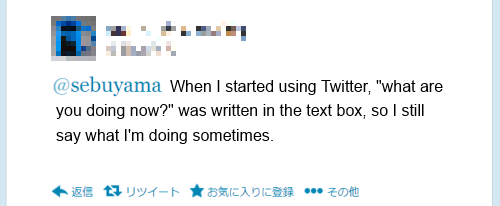
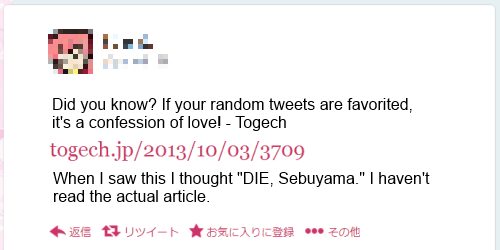


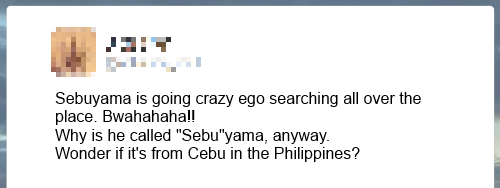
 Haters gonna hate: Japanese RN24 writer claims Mr. Sato is trash, but we’re not buying it
Haters gonna hate: Japanese RN24 writer claims Mr. Sato is trash, but we’re not buying it Internet trolls may not be the type of people you think they are, according to Japanese research
Internet trolls may not be the type of people you think they are, according to Japanese research The Twitter Experiment II: How to Get Replies from Celebrities on Twitter
The Twitter Experiment II: How to Get Replies from Celebrities on Twitter Survey reveals 70 percent of Japanese adults believe corporal punishment is necessary
Survey reveals 70 percent of Japanese adults believe corporal punishment is necessary Figure skater Evgenia Medvedeva receives hate mail in Japan, fans respond with viral hashtag
Figure skater Evgenia Medvedeva receives hate mail in Japan, fans respond with viral hashtag Tokyo Skytree turns pink for the cherry blossom season
Tokyo Skytree turns pink for the cherry blossom season Yakuzen ramen restaurant in Tokyo is very different to a yakuza ramen restaurant
Yakuzen ramen restaurant in Tokyo is very different to a yakuza ramen restaurant Adorable Totoro acorn key holders come with a special guest hidden inside[Photos]
Adorable Totoro acorn key holders come with a special guest hidden inside[Photos] Japanese potato chip Rubik’s Cubes coming soon
Japanese potato chip Rubik’s Cubes coming soon Japan’s first-ever capybara cat cafe opens in Tokyo
Japan’s first-ever capybara cat cafe opens in Tokyo New Mochi Cream Doughnuts from Mister Donut pay homage to Japanese confectionery
New Mochi Cream Doughnuts from Mister Donut pay homage to Japanese confectionery Man arrested in Japan after leaving car in coin parking lot for six years, racking up three-million-yen bill
Man arrested in Japan after leaving car in coin parking lot for six years, racking up three-million-yen bill Nearly half of young Japanese women say they “hate” the company they work for in survey
Nearly half of young Japanese women say they “hate” the company they work for in survey Osaka establishes first designated smoking area in Dotonbori canal district to fight “overtourism”
Osaka establishes first designated smoking area in Dotonbori canal district to fight “overtourism” “Office lady in heels walking on tatami”: The mysterious world of Japanese fetishism
“Office lady in heels walking on tatami”: The mysterious world of Japanese fetishism The 10 most annoying things foreign tourists do on Japanese trains, according to locals
The 10 most annoying things foreign tourists do on Japanese trains, according to locals Starbucks Japan releases new sakura goods and drinkware for cherry blossom season 2026
Starbucks Japan releases new sakura goods and drinkware for cherry blossom season 2026 Naruto and Converse team up for new line of shinobi sneakers[Photos]
Naruto and Converse team up for new line of shinobi sneakers[Photos] Is Sapporio’s Snow Festival awesome enough to be worth visiting even if you hate the snow? [Pics]
Is Sapporio’s Snow Festival awesome enough to be worth visiting even if you hate the snow? [Pics] Japan has trams that say “sorry” while they ride around town…but why?
Japan has trams that say “sorry” while they ride around town…but why? Sakura Totoro is here to get spring started early with adorable pouches and plushies
Sakura Totoro is here to get spring started early with adorable pouches and plushies Starbucks Japan unveils new sakura Frappuccino for cherry blossom season 2026
Starbucks Japan unveils new sakura Frappuccino for cherry blossom season 2026 Poop is in full bloom at the Unko Museums for cherry blossom season
Poop is in full bloom at the Unko Museums for cherry blossom season Now is the time to visit one of Tokyo’s best off-the-beaten-path plum blossom gardens
Now is the time to visit one of Tokyo’s best off-the-beaten-path plum blossom gardens Playing Switch 2 games with just one hand is possible thanks to Japanese peripheral maker
Playing Switch 2 games with just one hand is possible thanks to Japanese peripheral maker Japan’s newest Shinkansen has no seats…or passengers [Video]
Japan’s newest Shinkansen has no seats…or passengers [Video] Foreigners accounting for over 80 percent of off-course skiers needing rescue in Japan’s Hokkaido
Foreigners accounting for over 80 percent of off-course skiers needing rescue in Japan’s Hokkaido Super-salty pizza sends six kids to the hospital in Japan, linguistics blamed
Super-salty pizza sends six kids to the hospital in Japan, linguistics blamed Foreign tourists in Japan will get free Shinkansen tickets to promote regional tourism
Foreign tourists in Japan will get free Shinkansen tickets to promote regional tourism Take a trip to Japan’s Dododo Land, the most irritating place on Earth
Take a trip to Japan’s Dododo Land, the most irritating place on Earth Archfiend Hello Kitty appears as Sanrio launches new team-up with Yu-Gi-Oh【Pics】
Archfiend Hello Kitty appears as Sanrio launches new team-up with Yu-Gi-Oh【Pics】 Survey asks foreign tourists what bothered them in Japan, more than half gave same answer
Survey asks foreign tourists what bothered them in Japan, more than half gave same answer Japan’s human washing machines will go on sale to general public, demos to be held in Tokyo
Japan’s human washing machines will go on sale to general public, demos to be held in Tokyo Starbucks Japan releases new drinkware and goods for Valentine’s Day
Starbucks Japan releases new drinkware and goods for Valentine’s Day We deeply regret going into this tunnel on our walk in the mountains of Japan
We deeply regret going into this tunnel on our walk in the mountains of Japan Studio Ghibli releases Kodama forest spirits from Princess Mononoke to light up your home
Studio Ghibli releases Kodama forest spirits from Princess Mononoke to light up your home Major Japanese hotel chain says reservations via overseas booking sites may not be valid
Major Japanese hotel chain says reservations via overseas booking sites may not be valid Put sesame oil in your coffee? Japanese maker says it’s the best way to start your day【Taste test】
Put sesame oil in your coffee? Japanese maker says it’s the best way to start your day【Taste test】 No more using real katana for tourism activities, Japan’s National Police Agency says
No more using real katana for tourism activities, Japan’s National Police Agency says How to deal with Internet trolls, as taught by Pen-Pineapple-Apple-Pen’s singer
How to deal with Internet trolls, as taught by Pen-Pineapple-Apple-Pen’s singer Japanese manga artist makes comic showing one of the most heartbreaking experiences for an author
Japanese manga artist makes comic showing one of the most heartbreaking experiences for an author Japanese Twitter users respond: “What do you do when a friend criticizes anime you like?”
Japanese Twitter users respond: “What do you do when a friend criticizes anime you like?” Language misunderstanding causes anger from Japanese TikTok users over “beached whale shark”
Language misunderstanding causes anger from Japanese TikTok users over “beached whale shark” Hayao Miyazaki reveals the kind of otaku he hates the most
Hayao Miyazaki reveals the kind of otaku he hates the most Japanese Internet can’t agree on what to call this color, what do you think it is?
Japanese Internet can’t agree on what to call this color, what do you think it is? Washington Post writer catches heat for “dirty Korean beer” joke
Washington Post writer catches heat for “dirty Korean beer” joke Woman accidentally tweets new iTunes card codes, the obvious happens
Woman accidentally tweets new iTunes card codes, the obvious happens Tweeted photo of employees bowing in apology angers Japanese internet users
Tweeted photo of employees bowing in apology angers Japanese internet users Why doesn’t Japan hate America for dropping the A-bombs?
Why doesn’t Japan hate America for dropping the A-bombs? “Nugget Thieves all over again.” Twitter Japan gets criticism for new anti-suicide feature
“Nugget Thieves all over again.” Twitter Japan gets criticism for new anti-suicide feature How to get your kids to hate video games, according to Japanese Twitter
How to get your kids to hate video games, according to Japanese Twitter Blog Chronicling Dumbasses at Tokyo Disneyland Shamed by Internet and Removed
Blog Chronicling Dumbasses at Tokyo Disneyland Shamed by Internet and Removed We ventured into a hidden gem of a Chinese Internet cafe in downtown Tokyo【Pics】
We ventured into a hidden gem of a Chinese Internet cafe in downtown Tokyo【Pics】 The Great Obon Disaster: A fable of cicadas, dancing, and cats
The Great Obon Disaster: A fable of cicadas, dancing, and cats